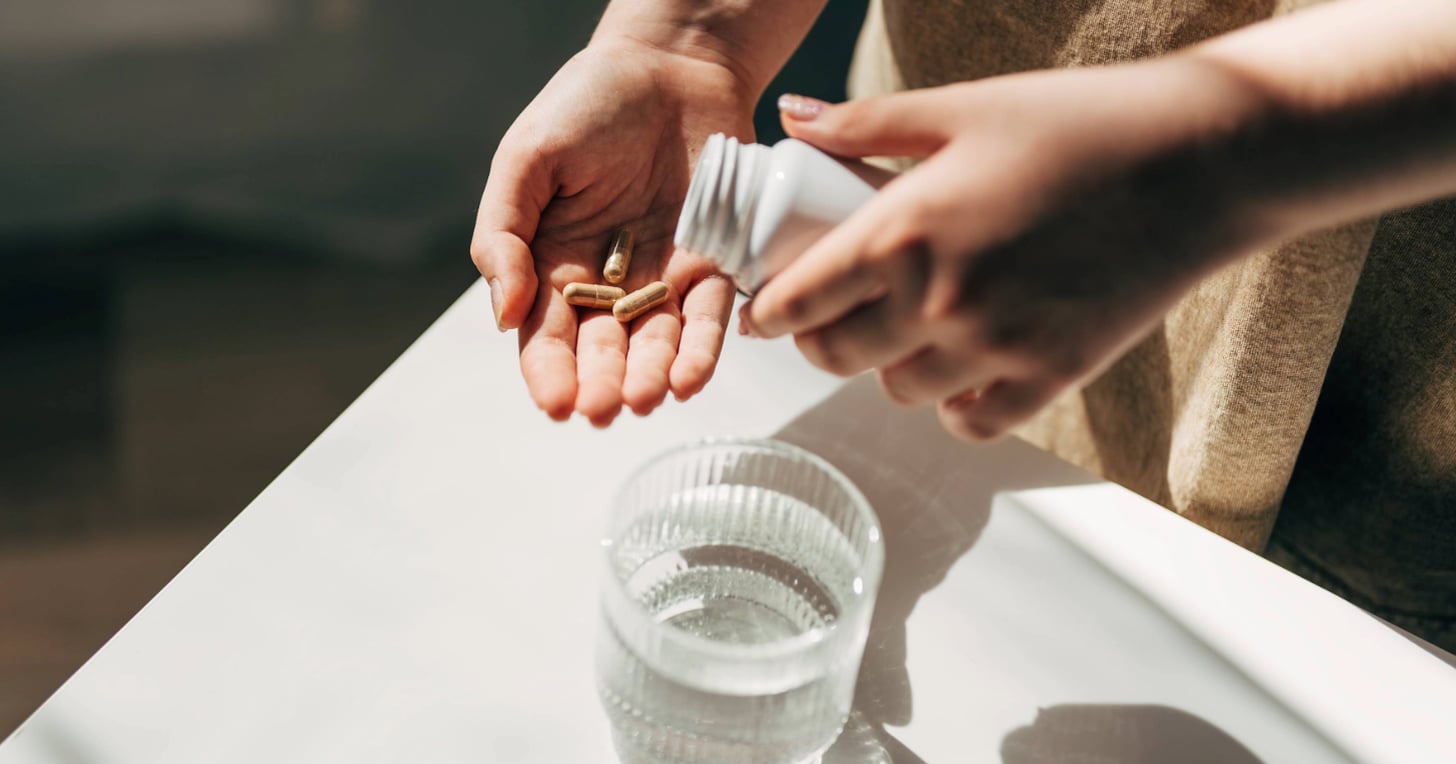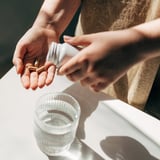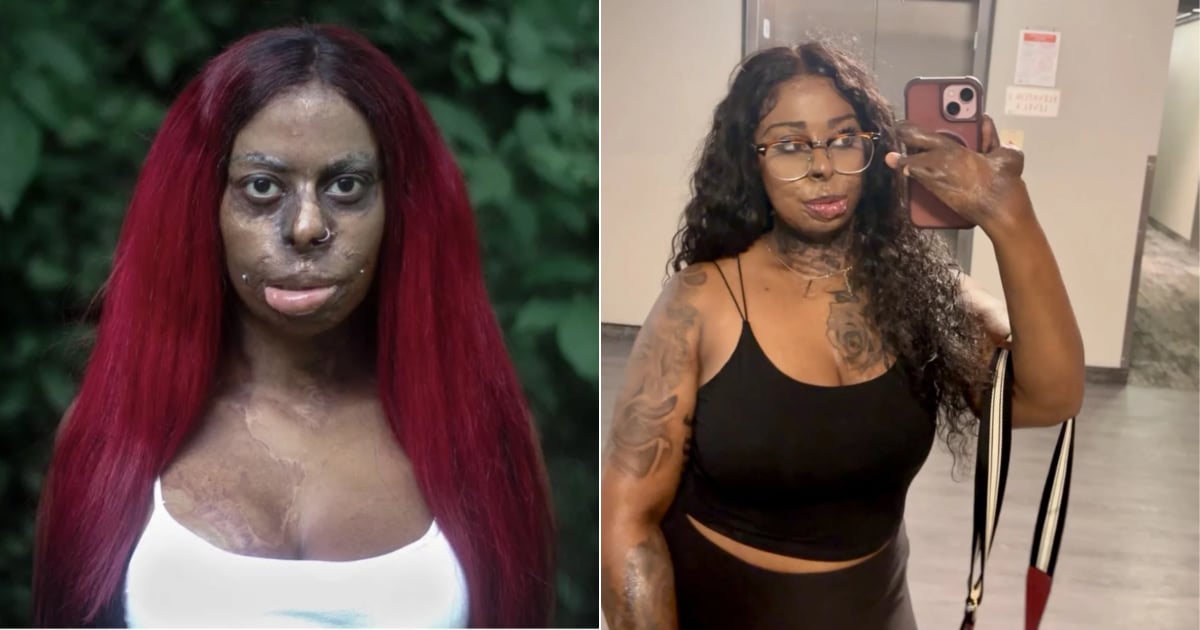I’ve always prided myself on having strong and vibrant hair, skin, and nails. They were my crowning glory until I hit my 40s and started noticing unwelcome changes. Suddenly, I was experiencing increased hair loss during my wash and condition routine, battling frizz like never before, and dealing with weaker nails and less radiant skin.
As a dietitian, I knew that relying solely on hair serums and nail-strengthening polishes wouldn’t be enough to make a lasting difference. Sure, they can help, but proper nourishment via the foods and supplements we include can have a profound impact on hair, nail, and skin health. So, along with continuing to use my weekly hair masks and coating my nails with Butter Jelly Nail Strengthener ($18), I decided to start including a supplement to support my hair and nail health, too.
I know what you’re thinking: Collagen is the way to go for healthy skin, hair, and nails. And while there’s an impressive amount of data suggesting that this may actually be the case, I have a weird mental block when it comes to ingesting that supplement. The idea of adding animal cartilage to my daily routine just doesn’t feel right, even though I know it could be beneficial to sprinkle it into my coffee or smoothies. I don’t mean to yuck your yum if you’re a collagen stan; I proactively recommend it to many people if they’re open to taking it. But for me? I just can’t do it.
So, when I attended a lecture and heard a presenting physician state that “keratin is going to be the new collagen,” I was intrigued. What was keratin, and can it help get my hair and nails back in tip-top shape? By combining a time commitment to researching the available data with a physical commitment to taking a keratin supplement every day to see if I noticed any changes, I was eager to find out once and for all if keratin is the supplement I’ve been missing in my beauty routine.
But First, What Is Keratin?
Before digging into whether keratin is, in fact, the equivalent of the fountain of youth in pill form, it’s important to understand what keratin is. Keratin is a tough, fibrous protein that’s a key structural component of hair, nails, and the outermost layer of the skin. It provides strength, resilience, and protection to these structures, acting as a natural barrier against external damage and environmental stressors. With its unique properties, keratin plays a vital role in maintaining the health and integrity of our hair, nails, and skin.
During my detective work, I discovered that keratin supplements are available in different forms, and one particular option caught my attention: Cynatine HNS keratin. Derived from sheep’s wool, this keratin source seemed the most widely used and based in science. (It’s interesting how my brain works – finding it acceptable to ingest something derived from sheep’s wool but feeling hesitant about cow cartilage. But hey, we all have our unique quirks and preferences, right?)
Cynatine HNS keratin has actual studies supporting its use, although there’s room for improvement in its design and quality. One randomized placebo-controlled clinical trial showed that women who took 500 mg of this form of keratin along with a combination of vitamins and minerals for 90 days experienced less hair loss, more hair growth, better hair strength, and better hair luster than those who took a placebo. When it came to their nail health, those who took the supplement had better nail strength and the appearance of nails vs. those who took a placebo.
Another randomized, double-blind, placebo-controlled clinical trial showed that those who took 500 mg Cynatine HNS keratin for 90 days along with vitamin and mineral supplementation experienced better skin moisture, skin elasticity, wrinkle reduction, skin compactness, and skin appearance vs. those who took a placebo.
While I generally like to take a supplement with robust data supporting its use, since there is little risk associated with taking it (those with an allergy to wool or lanolin should avoid taking it), I decided to give it a whirl.
My Experience Taking Keratin Supplements For 30 Days
It was quite a challenge to find a keratin supplement that met my criteria. Specifically, I was looking for one that contained the Cynatine HNS form in a 500 mg dose. To make things even more difficult, I wanted a supplement that didn’t have additional ingredients for nail and hair health support, as I have a personal aversion to taking collagen. After a diligent search, I finally came across Purity Product My Keratin Capsules ($25). This stand-alone supplement ticked all the boxes: It was reasonably priced, available from a reputable store (CVS!), and provided the exact form and dose of Cynatine HNS that I desired. I wasted no time and promptly purchased it online from CVS for less than $25, securing a 30-day supply.
I was already in the habit of drinking a smoothie every morning and sprinkling some of my supplement capsule contents into my concoction. Since the contents of the keratin supplements didn’t have a strong flavor, I added these to my morning blend, too. And in the spirit of science, I didn’t add any other intervention that may impact my hair or nail health that I wasn’t already doing. That way, I can be certain that my keratin addition was to thank for any changes I may see after 30 days.
After my month-long trial, I was disappointed to find that my nails did not appear to be any stronger. I examined my nail beds to determine if my new growth appeared stronger than my old nail and . . . nope. So, bummer in the nail department.
But, the amount of new hair growth that I noticed only after taking the supplement for 30 days was uncanny. There was enough new baby hair growth around my hairline that I had to buy a new hair oil to tame it. And while I can’t say for certain if the amount of hair I was losing during wash and condition nights was less (as I was eyeballing it), I do believe there has been a noticeable decrease. Plus, the newer hair visually looks healthy, stronger, and shiny in the best way.
I did not notice any effects on my skin health, but fewer wrinkles may be in my future if I keep taking them.
Are Keratin Supplements Worth Taking?
Keratin supplements may be a worthy addition to a beauty regimen, depending on the person. There’s some data supporting its use, and anecdotally (per my anecdote), it may help promote hair health. And while some evidence suggests it may support nail and skin health, that wasn’t my experience.
As a dietitian, I wouldn’t hesitate to recommend keratin supplements to the right individual after making a few considerations clear. It’s essential to assess if there’s an underlying condition affecting the health of their hair, skin, or nails. If someone’s experiencing significant issues, such as hair loss, brittle nails, or dry skin, it’s best to determine the root cause and explore appropriate treatment options.
If you’re ready to jump on the keratin bandwagon, here are some things to consider:
- While keratin supplements may offer potential benefits, it’s important to remember that they should be taken in conjunction with an overall balanced diet and lifestyle. Remember, you can’t out-supplement a poor diet.
- If you’re keen on taking keratin in the form and dose that’s clinically based, ensure that you’re taking Cynatine HNS, which is a solubilized and bioavailable form of keratin (aka your body will actually use it thanks to the form it is provided in!).
- Make sure that the supplement you’re taking indicates that 500 mg of this ingredient is provided.
- Consistency is key when taking keratin supplements. It’s important to take them as directed, as sporadic use may not yield the desired results. The dosage and form of the supplement may also be important considerations, as different products vary in their composition and concentration.
- Since the data supports the use of Cynatine HNS keratin with other vitamins and minerals, exploring supplements that provide both may offer even more benefits than what I experienced. For a combo formulation, Life Extension’s Hair, Skin, and Nails Collagen Plus Formula ($24) checks the box (plus, it provides a boost of collagen for those who don’t have a weird aversion to that ingredient like me).
Lauren Manaker (she/her) is an award-winning registered dietitian and freelance writer who is passionate about providing evidence-based nutrition information in a fun and interesting way. Lauren is a PS Council member.



